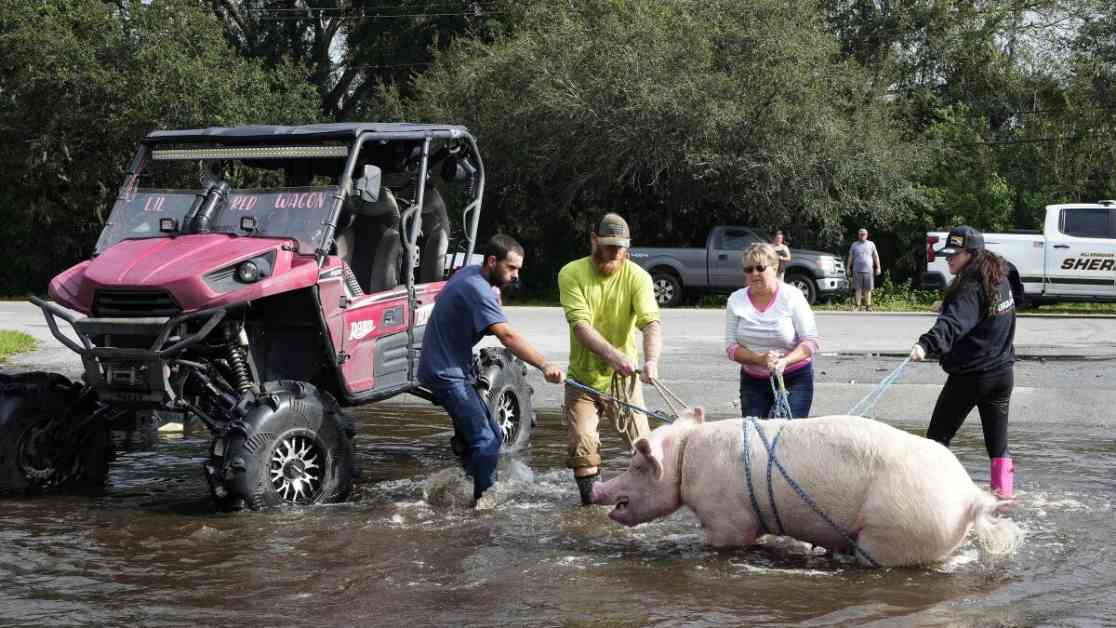Hurricane Milton wreaked havoc in Florida, leaving 16 people dead and causing extensive damage across the state. The aftermath of the storm saw communities grappling with flooding, power outages, and the destruction of homes and property. Rescue teams worked tirelessly to save those trapped in flooded homes, with some areas experiencing water levels as high as 6 feet.
The impact of Hurricane Milton was felt far and wide, with more than 1.3 million people under a coastal flood warning and forecasts predicting moderate to major river flooding in central Florida and the St. Johns River basin. The storm was the third hurricane to make landfall on Florida’s Gulf Coast this year, following hurricanes Debby and Helene.
Climate scientists have warned that extreme weather events like Hurricane Milton are becoming more intense and frequent due to human-induced climate change. President Biden acknowledged the significant damage caused by the storm, estimating a cost of nearly $50 billion for recovery efforts.
While some experts advocate for building more resilient communities in the face of climate change, Florida Governor Ron DeSantis defended residents’ right to rebuild in low-lying areas. The debate over whether to continue living in vulnerable coastal regions continues as Floridians grapple with the aftermath of back-to-back storms.
Despite the challenges posed by Hurricane Milton, many residents are determined to rebuild and restore their homes. From homeowners cleaning up debris and making repairs to investors assessing damage to rental properties, the resilience of Floridians shines through in the face of adversity.
As the hurricane season continues, there is still a risk of additional storms impacting the region. The National Oceanic and Atmospheric Administration warns of enhanced odds of tropical cyclone formations in the western Caribbean, urging preparedness and vigilance in the months ahead.
The aftermath of Hurricane Milton serves as a stark reminder of the increasing threats posed by extreme weather events and the importance of building resilient communities in the face of climate change. Floridians remain resilient in the face of adversity, determined to rebuild and recover from the devastation wrought by the storm.



























